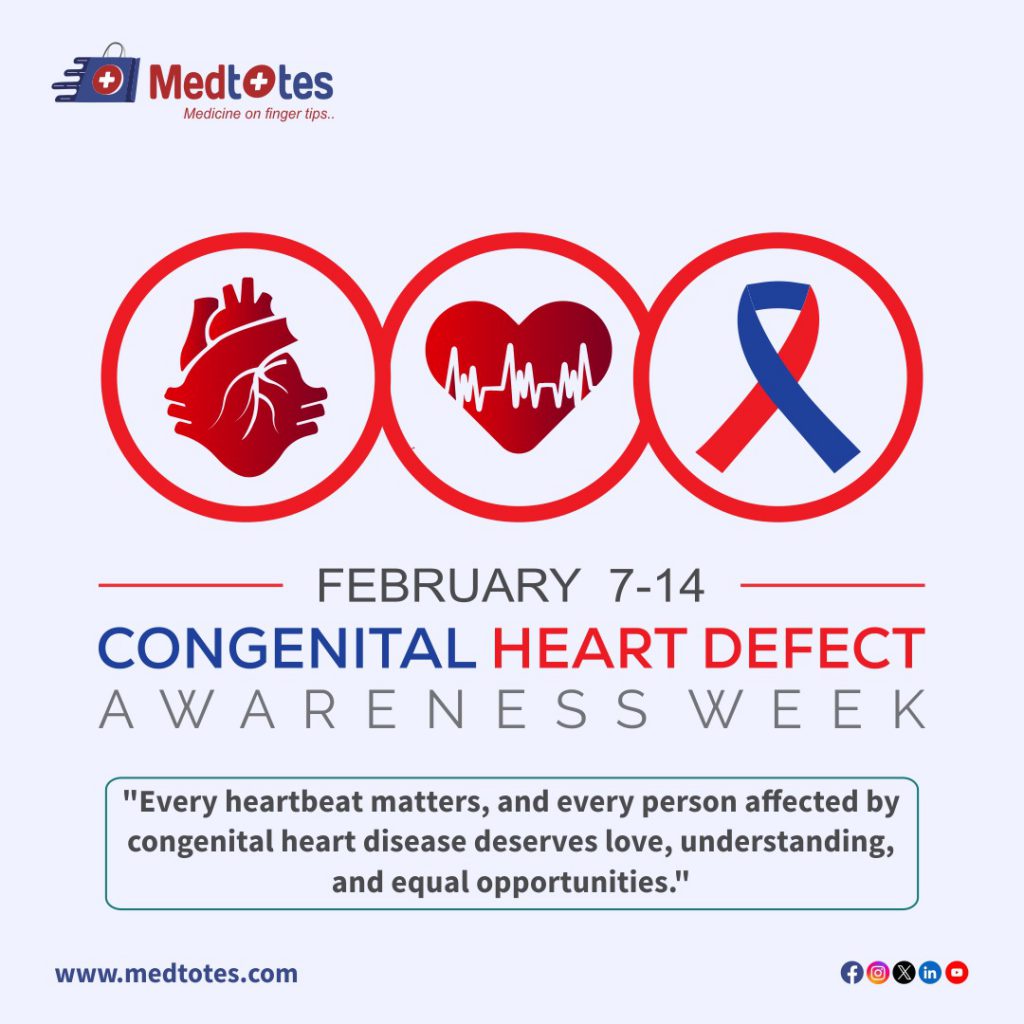I. Introduction
Congenital Heart Defect Awareness Week is an annual event designed to raise awareness of congenital heart defects (CHDs), which are structural abnormalities of the heart that occur at birth. These anomalies can damage the heart’s walls, valves, arteries, and veins, interfering with proper function. Congenital Heart Defect Awareness Week, held during the first week of February, is an important opportunity to educate the public on the prevalence, impact, and advances in the diagnosis and treatment of CHDs. It also allows you to help individuals and families impacted by these disorders, fight for research funding, and encourage preventative steps to lower the risk of CHDs. Let us come together to promote awareness, offer support, and work towards improving the lives of those affected by congenital heart defects.

II. What are Congenital Heart Defects?
The defects are structural problems in the heart that are present at birth. They can affect the walls of the heart, the valves of the heart, and the blood vessels near the heart. Congenital heart defects can vary in severity and may require medical intervention. Some congenital heart defects may not cause any symptoms and may go undiagnosed until later in life. In severe cases, congenital heart defects can be life-threatening. In severe cases, congenital heart defects can be life-threatening and require immediate medical attention. Immediate medical attention is necessary to prevent further complications and potentially save the person’s life. Immediate medical attention is necessary to prevent further complications and potentially save the person’s life. In some cases, a delay in seeking medical attention can result in irreversible damage or death. In some cases, a delay in seeking medical attention can result in irreversible damage or death. Therefore, it is crucial to seek immediate medical attention to prevent further complications and ensure the best chance of recovery.
III. Signs and Symptoms of CHD
The list of signs and symptoms of CHD includes the following:
- Chest pain or discomfort
- Shortness of breath
- Fatigue or weakness
- rapid heartbeat
- Dizziness or lightheadedness
- Swelling in the legs, ankles, or feet
- Cyanosis (bluish color) in the lips, fingers, or toes
- Fainting or loss of consciousness
IV. Treatment and Management of CHD
- Medications: Depending on the severity of the CHD, medications may be prescribed to manage symptoms, reduce strain on the heart, and prevent complications.
- Surgical interventions: In some cases, surgery may be necessary to repair structural abnormalities or improve blood flow. This can include procedures such as angioplasty, stenting, or open-heart surgery.
- Lifestyle changes: Making healthy lifestyle choices, such as eating a balanced diet, exercising regularly, quitting smoking, and managing stress, can help manage CHD and reduce the risk of complications.
- Regular monitoring: Individuals with CHD will need regular check-ups with a cardiologist to monitor their condition, assess treatment effectiveness, and make any necessary adjustments to the treatment plan.
- Supportive care: In addition to medical interventions, individuals with CHD may benefit from support groups, counseling, and education on managing their condition to improve their quality of life and mental well-being.
V. Conclusion
In conclusion, Congenital Heart Defect Awareness Week is crucial in raising awareness and providing support for individuals and families affected by congenital heart disease (CHD). It fosters community, breaks down stigmas, and improves early detection, treatment options, and ongoing management of CHD. Education and advocacy aim to ensure everyone receives the necessary support and care for a healthier, more fulfilling life, ultimately aiming for a world where everyone is treated equally.
Download our app: https://bit.ly/3tkQkFy
